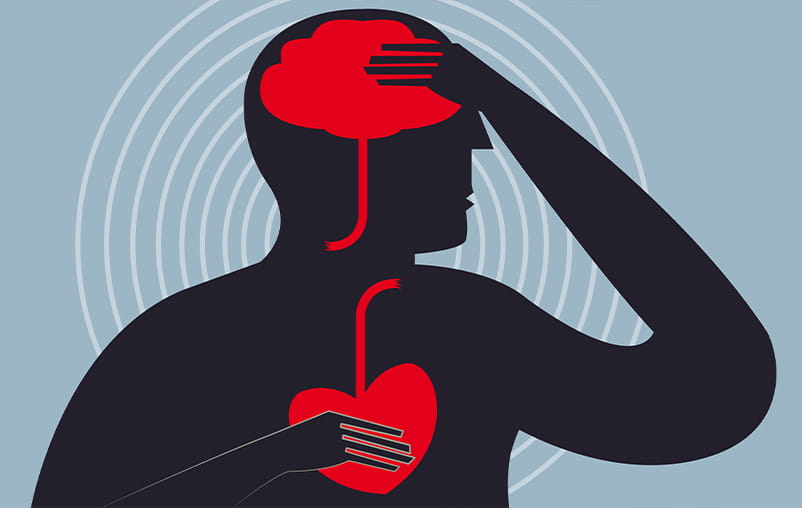You may only worry about losing an hour of sleep when the clocks spring forward Sunday, March 9, but the time change can also pose risks for your health.
Research shows that the risk of stroke, heart attack and car crashes all increase in the days following the switch to daylight saving time. Keep reading to learn more about your body’s natural sleep patterns and how you can adjust to the time change.
How Time Changes and Light Affect Sleep Patterns
With daylight saving time, it’s still dark in the morning and stays light later into the night. This confuses our bodies, and we need time to adjust.
Circadian Rhythm Disruption
Time changes affect your body's natural circadian rhythm, which helps your brain signal that it's time to go to sleep and controls other organ systems.
“Our light cues will not be there when we wake up,” said Dr. Suhaib Haq, a sleep medicine specialist at University Health. “Our brains will still think it's night, so we're going to wake up tired. We are going to wake up sleepy, even if we have had an extra hour of sleep the night before.”
Light Exposure Shifts
Exposure to light is the biggest regulator of your circadian rhythm. A recent study of seasonal effects on sleep disruption in the U.S. found that sleep duration decreased with increasing daylight length, and shortest sleep times and earliest wake times occurred during spring.
How to Prepare for the Time Change
You can reduce the impact of the springtime change by planning a few days in advance. Dr. Haq says there are things we can do to minimize its impact.
Gradual Adjustment
Begin going to bed 15 minutes earlier every few nights, and gradually get up earlier, too. This will help your body slowly adjust to the light difference outside.
Light Management
Blue light, the light that comes from electronic devices such as smartphones, tablets and laptops, is proven to make it more difficult to fall asleep because it reduces melatonin production, a natural hormone that helps you fall asleep. To fall asleep easier, put your electronics down at least half an hour before going to bed and keep them out of reach.
When you wake up, go outdoors and soak up a little morning sunlight in the week after the time change. That will help reset your body’s natural clock.
Healthy Sleep Habits
Nurture healthy sleep habits by creating a regular bedtime routine. Here are some tips:
- Stop using electronics at least half an hour before bedtime
- Keep your bedroom slightly cooler (between 65-68°F is the ideal room temperature for sleep)
- Avoid caffeine and alcohol before bed
- Read a book or meditate before bed to quiet your mind
When to Seek Help
A sleep study might help diagnose a sleep disorder if you are experiencing:
- Excessive daytime sleepiness
- Excessive snoring
- Sleep apnea
- Narcolepsy
Sleep studies monitor your four stages of sleep, eye movements, muscle movements, brain activity and more. They can help diagnose a number of sleep disorders.
Learn more about what to expect during a sleep study on our website.
Sleep Medicine at University Health
The sleep specialists at University Health can diagnose and treat a wide range of sleep disorders in adults and children. We perform comprehensive sleep testing in our sleep labs at the Marriott Hotel downtown and at the La Quinta in the Medical Center.





